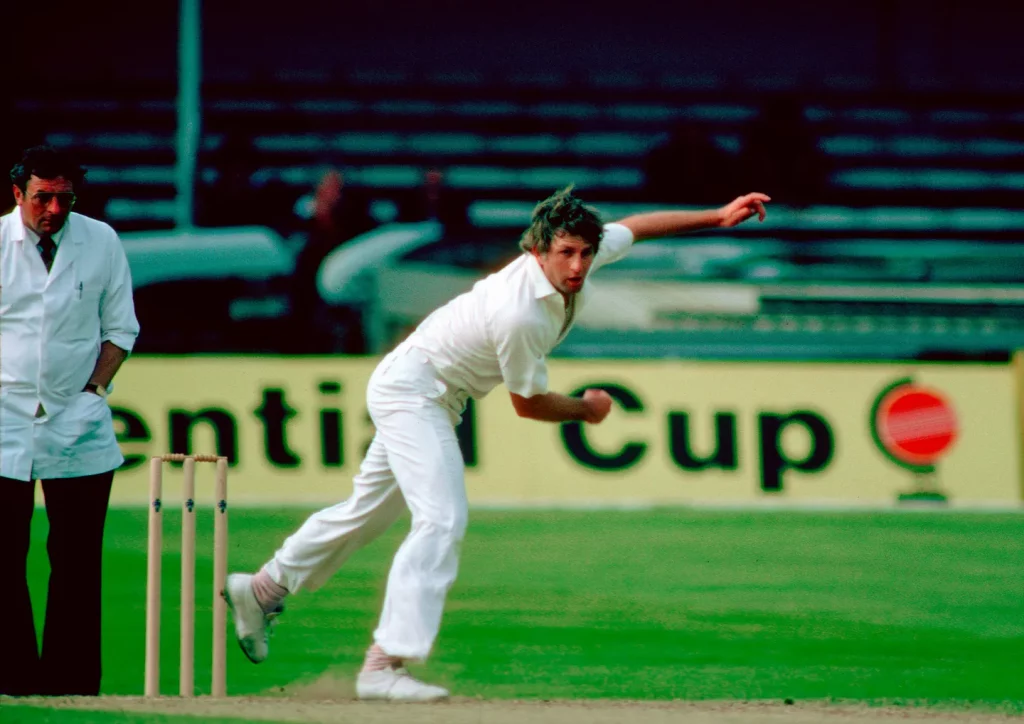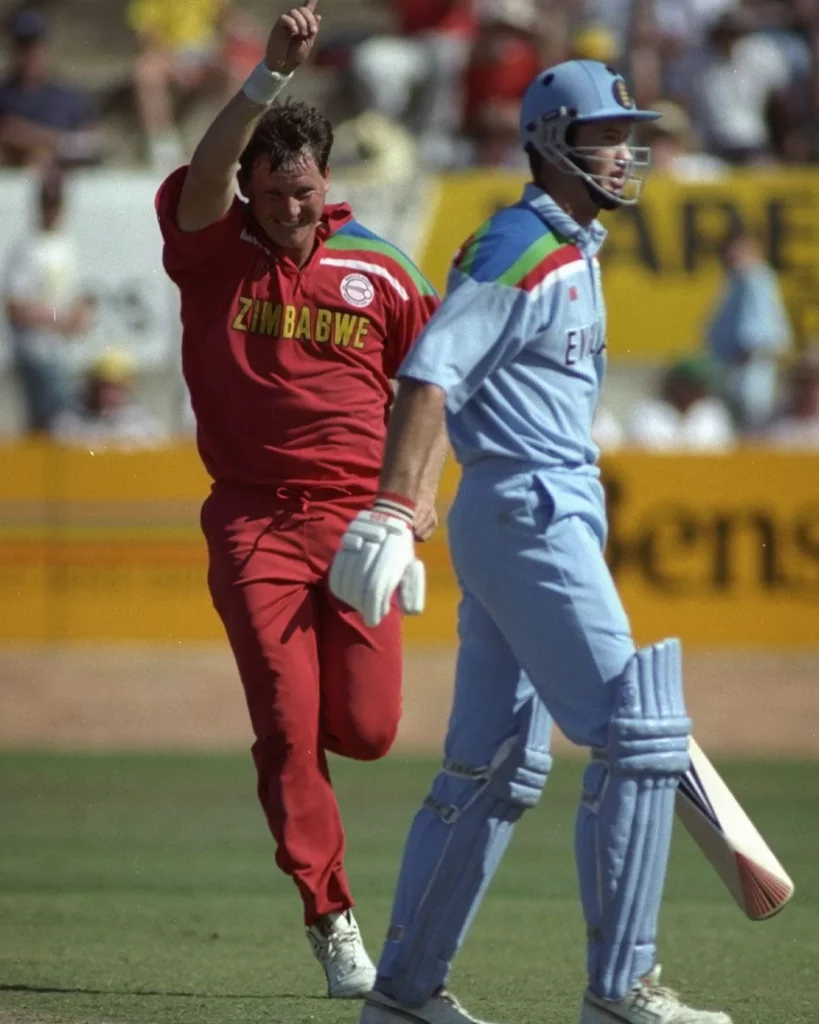BY SPORTSCAST WRITER
HARARE – They might be missing out of the Cricket World Cup for a second time in succession, having featured in every edition since their debut in 1983, but Zimbabwe find themselves being talked about in their absence at India 2023.
This is because the African side has provided some lasting memories in the history of the World Cup and after Afghanistan’s shock win over defending champions England in Dehli on Sunday, authoritative Australian website cricket.con.au took “a trip down memory lane with some of the 50-over World Cup’s most unexpected results.”
Number one was India’s 43-run win against a powerful West Indies side in the final to clinch the 1983 World Cup.
As for Zimbabwe, their own stunning win over Australia in that 1983 event comes second. Wrote the website, followed by another giant-killing act by the Zimbabweans in the 1992 edition:
Australia v Zimbabwe, 1983 World Cup
Zimbabwe win by 13 runs
Talk about starting with a bang.
Only three years after gaining independence, Zimbabwe’s first official one-day international was against Australia at the 1983 World Cup.
While the Australian side had just recently experienced its World Series Cricket revolution, leading to greater pay for players, the Zimbabwean team, although talented, was entirely amateur.
And things looked to be headed the expected way early on at Trent Bridge as the Zimbabweans fell to 5-84 with Dennis Lillee and Graham Yallop both taking two wickets each.
But a combination of tenacious batting from captain Duncan Fletcher (69) and Kevin Curran (27), as well as sloppy fielding from the Australians, allowed Zimbabwe to recover.
Fletcher himself was given two lives from missed chances, with he and No.8 Iain Butchart (31no) dragging the African nation up to a respectable 6-239 from 60 overs.
Openers Graham Wood (31) and Kepler Wessels (76) started smartly, adding 61 for the first wicket.
But it was that man again Fletcher, the Zimbabwe leader, who dragged his side back into the contest. He had Wood and opposing captain Kim Hughes (0) gone in successive overs, but he desperately needed some assistance as the tea break was called with the score 2-77.

Fletcher’s right-arm pace picked up the first four Australian wickets // Getty
David Hookes (20) did a good job building a 51-run partnership with Wessels, but an inspired Fletcher returned to the bowling crease and changed the game again.
He had Hookes caught at cover and Yallop caught in spectacular fashion by Andy Pycroft on the boundary, meaning the skippering allrounder had taken the first four wickets after top scoring in the first innings.
A brilliant throw from Jack Heron caught Wessels short of his ground and regular wickets fell to leave Australia 7-176.
Keeper Rod Marsh (50no) and fast bowler Rodney Hogg (19no) were left to pick up the pieces but by that point there weren’t enough overs left.
A challenging 53 was needed off the final five overs, then a near-impossible 23 from the last one. Australia finished 13 runs short as Fletcher’s men entered the World Cup arena in the best possible circumstances.
England v Zimbabwe, 1992 World Cup
Zimbabwe win by nine runs
Lavington Sports Ground on the New South Wales and Victoria border hasn’t hosted a great deal of professional cricket, let alone international cricket, in its history, but in 1992 the 6,000 fans in attendance witnessed one of the great World Cup boilovers.
Things looked like they were going to script early as England’s bowlers took advantage of favourable conditions, restricting Zimbabwe to 6-77. Only captain Dave Houghton (29) and Iain Butchart (24) managed to make it past 20, as Ian Botham (3-23) and Phil Tufnell (2-36) struck regularly.
But a crucial, innings-high partnership of 31 between Butchart and Eddo Brandes (14) for the eighth wicket helped the Zimbabweans edge closer to a competitive total. Left-arm spinner Richard Illingworth (3-33) cleaned up the tail as England bowled out their opponents for 134.
It was only when England captain Graham Gooch fell lbw to Brandes off the first ball of the innings were Zimbabwe considered a chance. Brandes (4-21), the chicken-farming fast bowler, totally destroyed the English top order with four of the first five wickets to fall, including Allan Lamb, Robin Smith and his former school mate from Harare, Graeme Hick for nought.

Eddo Brandes dismisses his former schoolmate Graeme Hick // Getty
A 52-run stand between Neil Fairbrother and Alec Stewart (that spanned 24 overs) helped England recover from the desperate position of 5-43, but another mini collapse of 3-13 all but consigned England to defeat.
A simple catch to Andy Pycroft to dismiss Gladstone Small in the final over of the innings saw England all out for 125, nine runs short of the jubilant Zimbabweans.





























